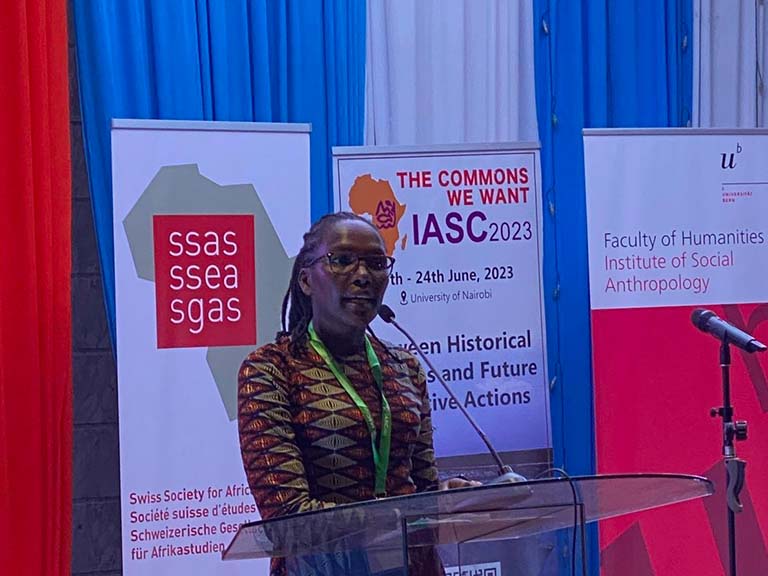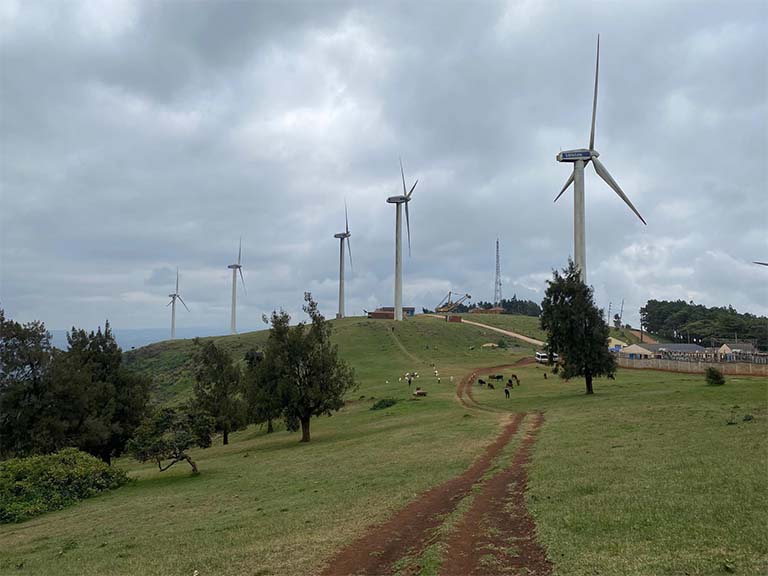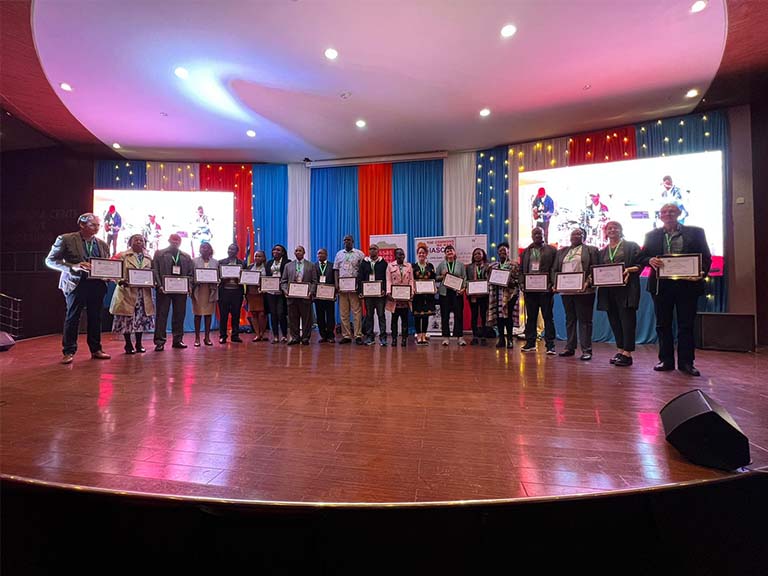International conference
Protecting the Commons
How can the theft of land and other collectively owned resources be stopped and how can the achievements of indigenous people to preserve biodiversity be recognised? These questions were the focus of an international conference on "Commons" in Kenya, which was jointly organized by the Universities of Bern and Nairobi in June 2023.

It was the first time in over 20 years that the conference of the organization founded by Nobel laureate Elinor Ostrom to study the governance of the Commons was held again in Africa. Under the title: "The Commons We Want: Between Historical Legacies and Future Collective Actions", more than 600 participants debated between June 19 and 24 in the Kenyan capital of Nairobi at the XIX Biennial Conference of the International Association for the Study of The Commons (IASC). In the spirit of decolonization, the universities of Nairobi and Bern organized the conference together; in Bern, the Institute for Social Anthropology and the Center for Development and Environment (CDE) with the Kenyan partner organization CETRAD and the two vice rectorates for development and research were in charge. The Swiss Tropical and Public Health Institute (Swiss TPH) from Basel and the Swiss Society for African Studies (SSAS) were also involved.
Anything but backwards
The main topic was the question of which legal guarantees are necessary for the protection of common property in states and on a global level in order to put a stop to colonial legacy and neoliberal forms of economic exploitation. These lead to the robbing of land and other collective resources such as (pastures, fisheries and forests) and undermine efforts for sustainable use of collectively owned resources by local and indigenous groups. At the same time, it also became clear that the various ecosystem services and the preservation of biodiversity and climate protection by these groups are not sufficiently recognized. Indigenous peoples in particular are perceived by governments around the world as more of an obstacle to development than as guarantors of sustainable, alternative lifestyles.
Increased research cooperation in Africa
Together with African and European partner universities, the University of Bern is establishing two long-term research collaborations. These deal with health care and the sustainable use of water and land resources. The projects are part of an African-European initiative for excellent research and are intended to facilitate an equal and sustainable form of cooperation in the future.
The indigenous representative from Kenya, Milka Chepkroir from ICCA/Territories of Life, emphasized this in a widely acclaimed keynote speech. As a member of the Sengwer indigenous group, she explained how she had been ridiculed since childhood for the "backwardness" of her ethnic group and how the colonial and post-colonial state increasingly stole her group's collective resource rights. Despite this situation, indigenous peoples would have preserved rich biodiversity through collective management of these commons.
While the globalization process in its many aspects has led to further scarcity and rapid extinction of species on the planet, one must ask - according to Chepkroir- , the following question: "Why are these processes still underway and why is the connection between people and the earth, which characterizes our communities, only minimally recognized?"

The blind spot of the sustainability goals
Recognizing the ecological services that commoners provide around the world - including numerous civil communities and corporations in Switzerland, as Elias Maier from the Swiss Association of Citizens' Communities and Corporations (SVBK) explained online - is also difficult because, among other things, the UN Sustainable Development Goals (SDGs) ignore the commons. In the SDGs, sustainable action is primarily delegated to the levels of government and the private sector (large corporations). It is forgotten that worldwide and especially in the Global South, collective ownership of resources was historically the most common legal form before colonial and post-colonial states converted these collective rights into state and private property.
The panels of the conference took up this debate in 11 sub-themes, which were determined in a participatory process by experts from the Universities of Nairobi and Bern. In addition to the above-mentioned topics of the SDGs and commons grabbing, the topics "bottom-up institution building for the sustainable use of resources", "nature conservation and ecological justice" and current theoretical aspects were also discussed. New were the topics of the urban commons as well as the digital commons and health commons, on which many panels took place.

Greetings from the future rector
The conference began with an opening ceremony and a networking event, at which the Vice Rectors of the University of Nairobi (Prof. Stephen Kiama Gitahi) and the University of Bern (Prof. Hughes Abriel and the future Rector Prof. Virginia Richter) pointed out the valuable cooperation between the two universities. Furthermore, the political number three of the current Kenyan government, the Prime Cabinet Secretary Hon. Wycliffe Musalia Mudavadi, and the Swiss Ambassador to Kenya, Valentin Zellweger, addressed greetings to the participants as well as representatives of Kenyan and Swiss commoners’ organizations.
The conference was framed by four keynotes: In addition to the indigenous representative Milka Chepkroir, Dr. Mordecai Ogada (Kenya) presented on the responsibility of research in terms of environmental protection and exclusion of local groups, Prof. Jesse Ribot (USA) on the issue of vulnerability of local commoners groups in the context of climate change and representatives of the University of Western Cape (Profs. Moenieba Isaac and Ruth Hall) in a double keynote on local strategies to recover the stolen commons and future visions for a sustainable and solitary world.